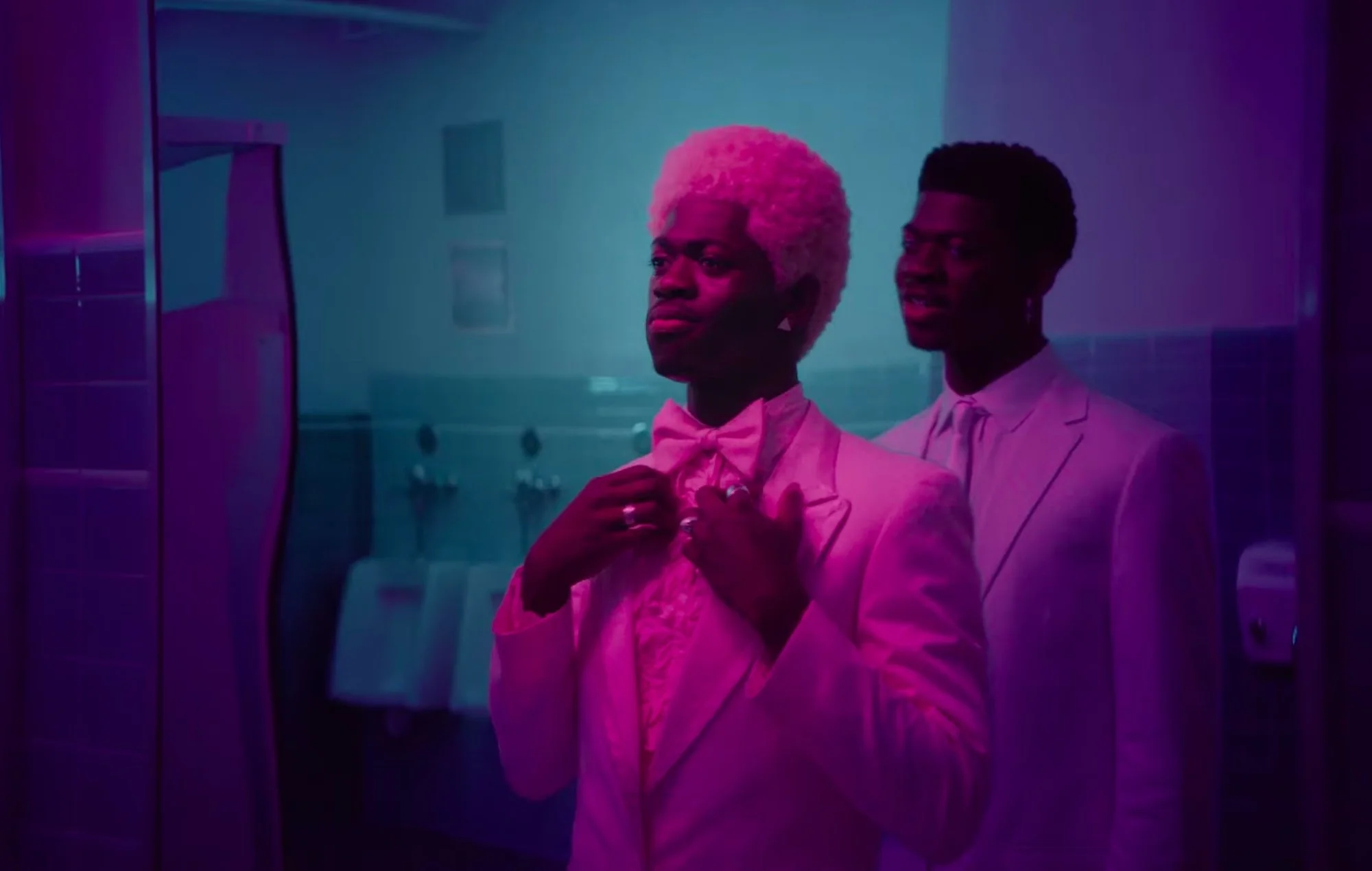Album Review: Lil Nas X, 'MONTERO'
Lil Nas X: The Man, The Tweeter, The Hitmaker. When Lil Nas X first exploded onto the scene with his historic "Old Town Road," many wrote off the young star as a one-hit wonder who got lucky off of a novelty song. The success of "Panini" quelled some of those jabs, but his less-than-stellar7 EP left a sizable number of people unconvinced. Then came 2021. With two back-to-back blockbuster singles, "MONTERO (Call Me By Your Name)" and "Industry Baby," Lil Nas X successfully defeated the one-hit wonder allegations several times over. More importantly, however, he had finally figured out his sound and the music was unequivocally great. Montero, his eponymous debut album, takes everything a couple of steps further. On his first full-length LP, Lil Nas X deftly dives into complicated family dynamics, recounts visceral memories of the darkest points in his life, and takes many deserved victory laps. The "Holiday" singer humanizes his image and lets us into the person behind the stunts and controversies, and he's made some of the best pop songs of the year while doing so.
Outside of the Satan Shoes and cross-realm stripper poles, "Call Me By Your Name" is still one of the best songs of the year. Take A Daytrip and Omer Fedi, who handle the majority of Montero's production, found the sweet spot in Lil Nas's intersection of pop, rap, dance, rock, and R&B. It's a career-defining song, both sonically and statistically, and yet it does not overshadow the rest of the album. "Call Me By Your Name" functions excellently as an introductory track. The title alone centers Lil Nas's humanity, while the reflective lyrics center his gay Black identity in the context of relationships, sex, and religion. Essentially, each song on Montero is a chapter of Lil Nas' ever-evolving autobiography; the songs are intensely personal reflections set against some of the catchiest melodies of the year. At the time of its release, "Call My Be Your Name" was arguably Lil Nas' most personal track, but in the context of Montero, it barely scratches the surface. "Dead Right Now," the album's second song, is a dystopian rap track that outlines his strained family dynamic and lambasts those who only use him for his fame. Between the ominous horns, organs, and strings, Lil Nas blends elements of gospel and trap into one powerhouse of a track. With his rapping front and center on this song, Lil Nas reaches for a venomous delivery that underscores the complicated feelings of spite towards a loved one: "Told me she'd be clean but I'm knowin' that her ass is a deceiver / My mama told me that she love me, don't believe her." Lil Nas is already growing into a strong storyteller. His lyrics are relatively plain, but there's a sincerity in that plainness that would have been muddied had he drenched his verses in overwrought metaphor. At the end of the album's first track, Lil Nas yearns for a utopia where he can call his lover by his own name, but "Dead Right Now" yanks him down into a dystopia that takes on different forms pre and post-fame. On "Tales of Dominica," which features a histrionic string-laden outro, Lil Nas continues his exploration of his family dynamic with heartbreaking lines like: "I've been living on an island made from faith / Can't go running back to home, I can't face her face." Throughout Montero, Lil Nas does an excellent job of centering his personal experiences. This is a strikingly difficult task considering how massive his first hit single was and how much of his public image is tied to memes and controversy, but he handles it all with ease.
Columbia
On another one of Montero's pre-release singles, "Sun Goes Down," Lil Nas unpacks his past suicidal thoughts and the damaging effects that colorism and homophobia had on him. The bouncy Post Malone-esque melody adds a bit of whimsy to the otherwise heavy song, but it still remains one of the most heartfelt moments on the album. We all know how Lil Nas's story goes, so he opts to use other songs as love letters and advice to his younger self. On "Void," he writes to his "old friend from the road" about how "it ain't all what it seems" and how he "can't find a love who loves [him] the same." The joint terrors of fame, colorism, featurism, racism, and homophobia present intense roadblocks for Lil Nas X on his search for love, but he still holds on to hope in spite of it all. "Don't Want It," despite its sometimes awkward melody, finds Lil Nas taunting the reaper and reclaiming his joy and will to live. "And I'm fuckin' living proof that if you want it / You can have anything right before your eyes," he preaches. Amen, Lil Nas. Amen. Montero's opening track hinted at some relationship troubles, and Lil Nas continues that thread on "Life After Salem." Primarily concerned with how fame has impacted his relationships, he sings, "I can be your part-time lovеr / Our scars, they'll dance with each other." Anchored by gorgeous cello and guitar, "Life After Salem" plunges into pop-rock in a way that's more refined than Lil Nas' previous attempts at the subgenre. He, along with the instrumental, sound truly anguished here. What Lil Nas lacks in vocal ability, he tries his best to make up for with his commitment to emoting as frequently and as effectively as possible. "Lost In The Citadel" also creeps into pop-rock with its dramatic combination of double bass, guitar, cello, drums, and more.
The most beautiful part of Montero is the way that Lil Nas invites his collaborators (most of them his peers) along for his victory lap. "Industry Baby," his latest smash hit, finds Jack Harlow delivering an enjoyable verse while the song itself flips the dreary horns of "Dead Right Now" into a more celebratory affair. Doja Cat stops by for a criminally short guest verse on "Scoop," a sexy ode to hooking up and staying the hot topic of conversation. Both children of the Internet and masters of meme culture, Lil Nas and Doja have excellent chemistry; "Scoop" feels like a tease for something even greater. On the other hand, Megan Thee Stallion makes an entertaining appearance on "Dollar Sign Slime," the album's obligatory braggadocio anthem. Like on "Industry Baby" and "Holiday," it's always fun to hear Lil Nas big himself up; add Megan to the mix and the price goes up. "So fuck all that, 'Nas, be considerate' / I'm really that nigga that's killin' it," Lil Nas spits. Miley Cyrus also gifts Lil Nas a gorgeous vocal performance on "Am I Dreaming," the album's closer. Somewhat surprisingly, however, Elton John has the best guest appearance on the album. "One Of Me," a smart track written from the perspective of Lil Nas's detractors, finds Elton providing a beautiful piano line. "I don't see you lasting long and that's just me being honest / Even if your album okay, it's floppin', that's a promise," Lil Nas rap-sings. In the end, Lil Nas gets the last laugh. He got a certified music legend to play piano on his debut album which happens to feature two of the most successful songs of the year — two years after everyone attempted to write him off after "Old Town Road." Nothing tops a moment like that. Nevertheless, no song reaches the heights of "That's What I Want." Lil Nas can do the rap stuff and the rock stuff, but he truly thrives in pop. "That's What I Want" is an earnest anthem of euphoria and lust. A song that centers dark-skinned Black gay love is an anomaly in today's mainstream, but after Lil Nas maybe those stories will be more commonplace.
Montero is a triumph, there's no debate about that. Lil Nas X, Take A Daytrip, and Omer Fedi went into the booth, took their time, and created an album that's honest, vibrant, and expansive. This is a formidable formal start to his musical journey.
Key Tracks:"That's What I Want" | "One Of Me" | "Dead Right Now" | "Don't Want It" | "Industry Baby"
Score: 78






A missed opportunity to truly lay into the BET Awards as an institution and unpack how they fail to serve so many segments of the Black community.